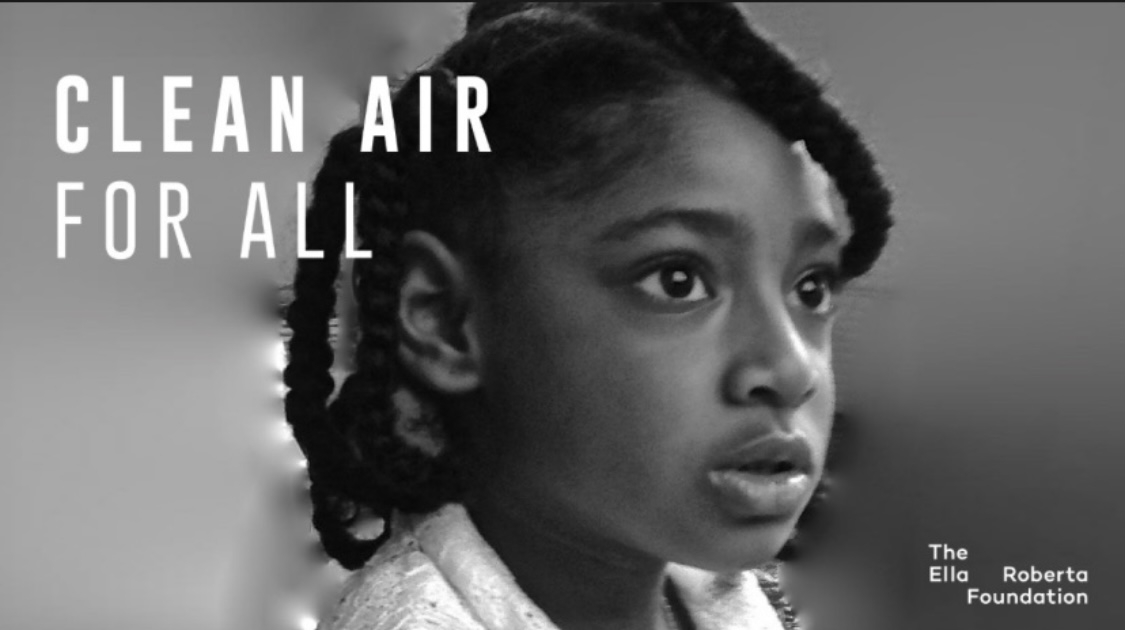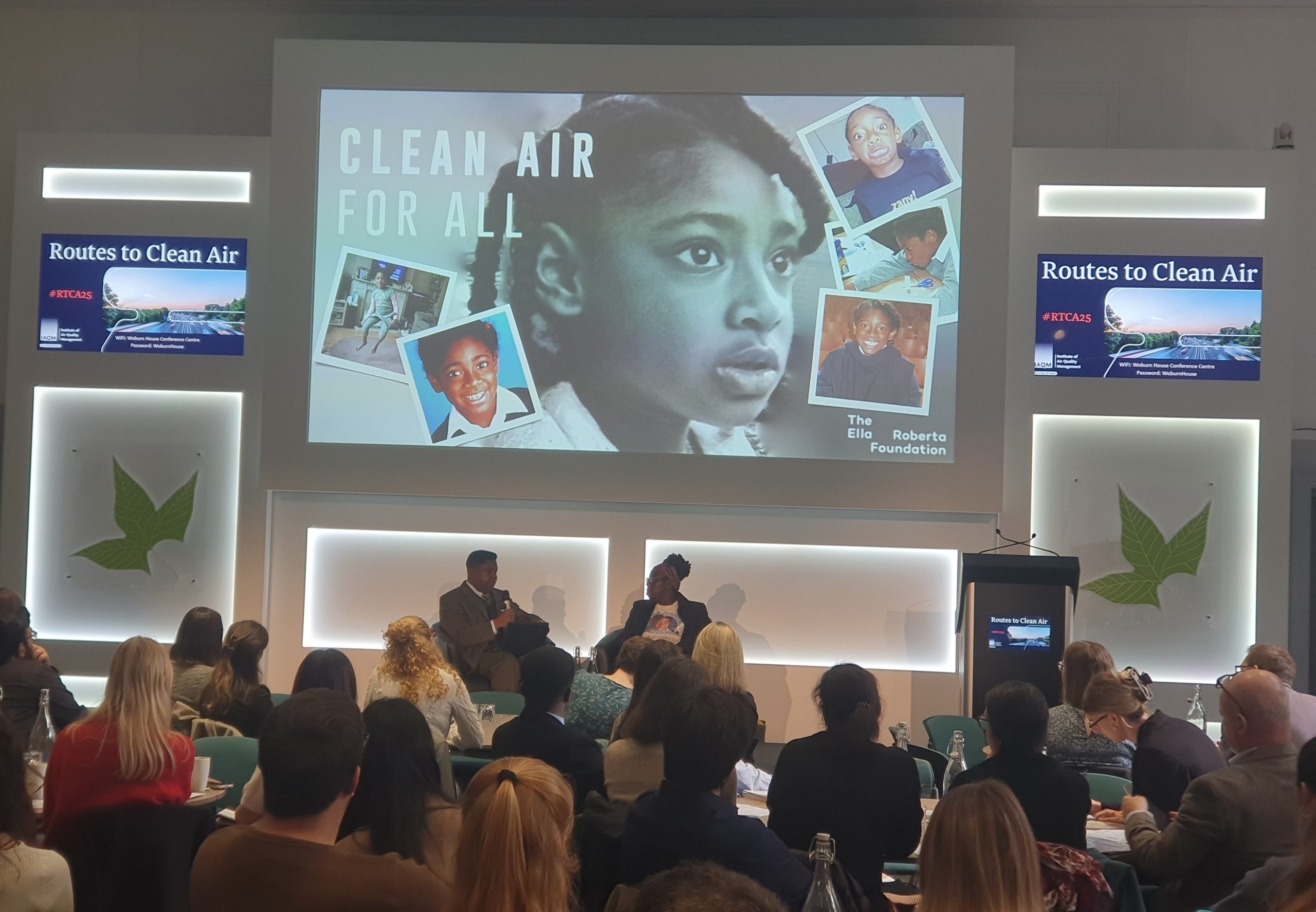ONE YEAR ON…

“The WHO’s latest air quality guidelines would cut global premature deaths linked to PM2.5 pollution by 80%. We can and should aim to meet these guidelines by 2030” Rosamund Adoo-Kissi-Debrah
APRIL 20 2022: It is one year since Coroner Philip Barlow published the Prevention of Future Deaths Report following the landmark ruling that air pollution contributed to 9 year-old Ella Adoo-Kissi-Debrah’s death from severe asthma.
The PFD Report recommended three key areas of focus: the implementation of legal air pollution limits based on WHO guidelines, a public awareness campaign on the dangers of air pollution to human health, and greater awareness and education of the medical community on the dangers of air pollution to patients.
A year later (watch our press conference here) little has changed to prevent future deaths like Ella’s. DEFRA is now carrying out a public consultation on UK air quality targets. However, it proposes to meet the WHO’s older 2005 guidelines by 2040, rather than the WHO’s 2021 guidelines based on the latest science on protecting public health.
The Ella Roberta Family Foundation and Hodge Jones & Allen held a press conference in London with four leading experts on air pollution and its danger to human health, where they discussed advocacy, achievability, and accountability in the fight against air pollution and asthma.
Please see below for statements from each of the speakers ahead of the press conference:
Rosamund Adoo-Kissi-Debrah, clean air advocate, BreatheLife Ambassador and mother of Ella Adoo-Kissi-Debrah, the first person in the UK, and likely the world, to have air pollution listed as a cause of death on her death certificate:
“Ella passed away from severe asthma which was exacerbated by excessive levels of air pollution on the South Circular nine years ago. The government’s Environment Act gives us a chance today to change the course of the 40,000 lives that are lost prematurely each year in the UK due to air pollution. Up to 24 of these deaths are children who die from asthma. That’s almost a whole school class of children. Up to half of these deaths occur in London alone.
“Last year, Coroner Philip Barlow set out three recommendations for the government (among others) on preventing future deaths like Ella’s. One of those was following the World Health Organisation’s guidelines for air quality. The WHO’s latest air quality guidelines would cut global premature deaths linked to PM2.5 pollution by 80%. We can and should aim to meet these guidelines by 2030, to protect lives and reduce health care costs. “Unfortunately, the government’s proposed air quality targets under the Environment Act fall short of what the WHO’s science says is necessary. This is unacceptable. Air pollution is a public health crisis, and we know how to fight it, with better public transport, air quality monitoring and public awareness, and an end to car idling and wood burning. I hope the public follows me in calling on the government to step up and save lives.”
Professor Stephen Holgate, a clinical professor and consultant physician at the University of Southampton, special advisor to the Royal College of Physicians on air quality, and a UK Research and Innovation Clean Air Champion, and an expert at Ella’s inquest.
“Improved public health must be at the core of the UK’s air quality strategy. Evidence continues to accumulate showing that air pollution levels far below the current UK limit values initiates and accelerates a wide range of non-communicable chronic diseases. This is especially so for fine particulates (PM2.5) and NO2 which have a wide range of sources. The time is now right to enact the recommendation in Philip Barlow’s Prevention of Future Death Report to accept the WHO health-related limit values and achieve these as soon as possible and certainly by 2030 as shown possible by the Environmental Research Group at Imperial College. There are no safe levels of air pollutants, but if the UK was to meet the WHO limits for PM2.5 and NO2 air pollution by 2030, each year to 2030 compared to 2018, there would be 388,000 fewer asthma symptom days in children, 149,000 fewer adults with chronic phlegm, 3,100 fewer cases of coronary heart disease, 2,700 fewer hospital admissions for cardiovascular diseases and 98,000 life years gained.”
Guy Mitchell, Solicitor at Hodge Jones & Allen and a member of Rosamund’s legal team during the second inquest into Ella’s death in 2020:
“Despite the urgent concerns raised by the Coroner last year, the Government has made slow progress on reducing air pollution and its current plans are not up to the task. Ella’s Inquest showed that inaction by successive governments led to lethal levels of air pollution. The Coroner particularly noted with concern the disparity between legal targets and the best science available in the WHO guidelines. It is deeply regrettable that the present government plans to follow in this deadly tradition by not basing the critical PM 2.5 limit on the latest WHO guidelines and only requiring compliance by 2040.”
Professor Frank Kelly, Battcock Chair in Community Health and Policy at Imperial College London in a new global centre of air pollution research. Presides over experimental research examining the toxicity of airborne particulate matter, diesel and biodiesel exhaust emissions.
“Poor air quality is not only exerting a greater impact on established health challenges, such as respiratory and cardiovascular morbidity and mortality, but is also associated with a broader number of disease outcomes, including adverse birth outcomes, diabetes, neurodevelopment and cognitive function. Solving our air pollution problem is absolutely vital but presents a huge challenge. Success will depend upon the concerted action of a host of parties – including policy makers at a local, national and international level. The 2021 Environment Act is the UK’s opportunity to demonstrate leadership in this vital area and to give its citizens air quality that is fit to breathe.”
Research from Imperial College London shows that 99.2% of the UK can achieve WHO-10 by 2030 with the government’s planned and anticipated policies. The full report can be accessed here: https://www.imperial.ac.uk/news/234354/who-quality-safety-targets-achievable-across/amp/


